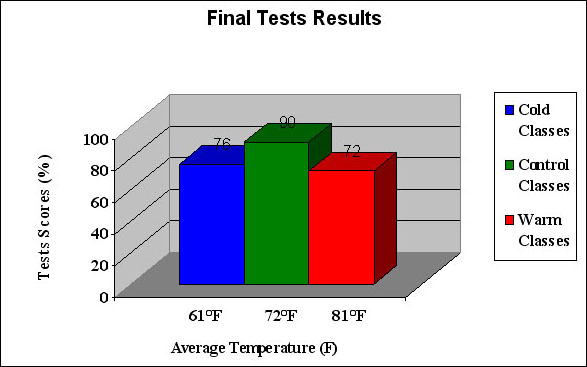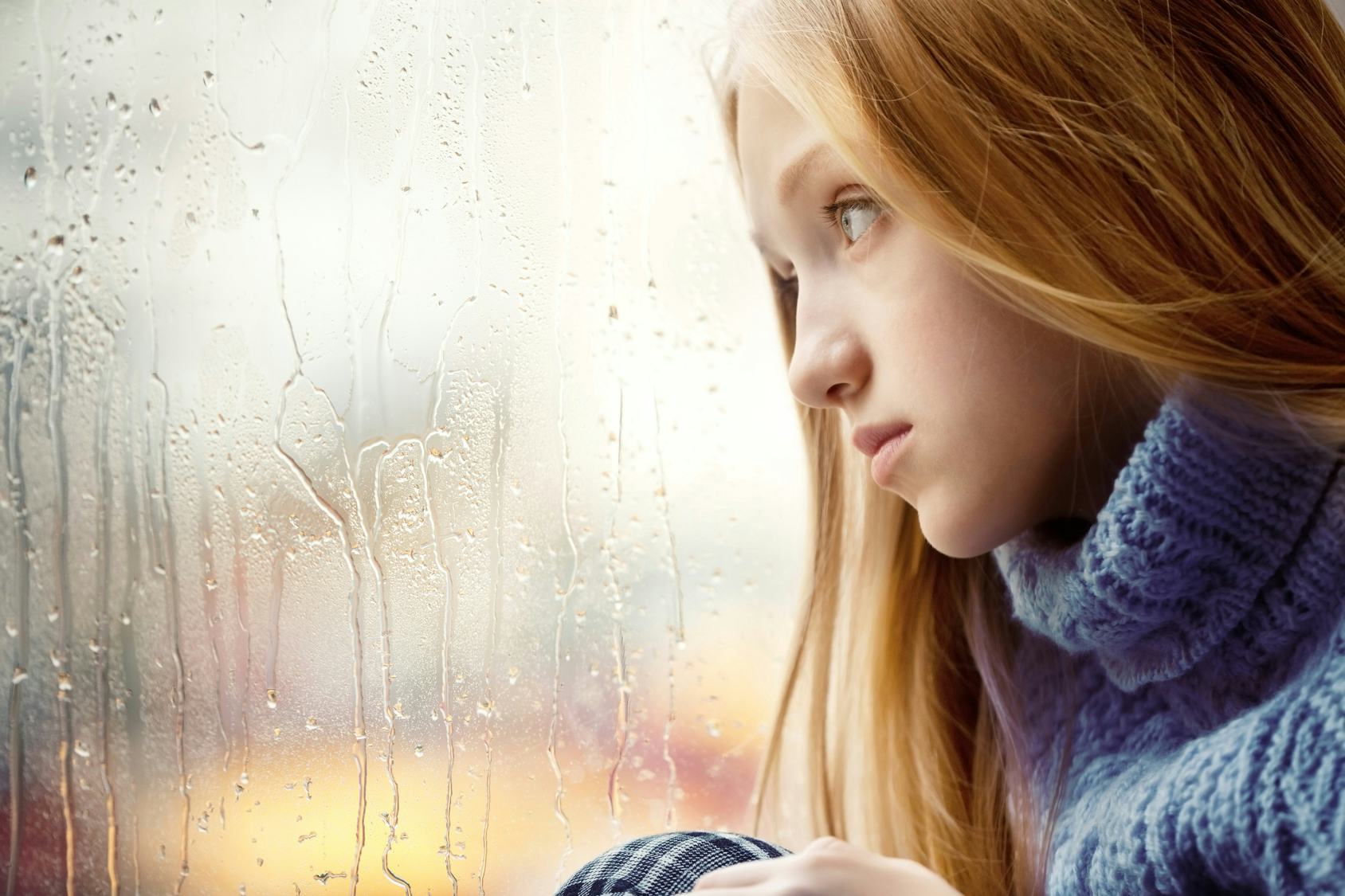Going to a school like Penn State, we suffer through a lot of winter. Gross, rainy, snowy, freezing days are the norm here for 80% of the year, and yet, it seems to be a fairly fun, loving place. However, one common myth is that seasonal changes affect students academic success. I decided to investigate this, because I’m already feeling less motivated and more inclined to stay in bed rather than get up for my daily 9 am. So, do seasonal changes affect students academic success?
Study One
In one study, a group of 2479 college students were analyzed to investigate how their GPAs were affected across various seasons. In this study, the GPAs of the students were collected from the fall semester and the spring semester to investigate if there was any significant changes. According to the authors, sophomore, junior, and senior students retained higher GPAs in the spring when the weather is looking up and typically nicer. In addition, most students had higher scores on tests and assignments in the spring season, leading to one potential link between seasonal changes and academic success (Besoluk and Onder). However, let’s take a look at another study to find any other evidence.
Study Two
This study won a Special Achievement Award at this year’s Environmental Protection Agency symposium held in the nation’s capital. Three Oregon high school students, sophomore Josean Perez, junior Julio Montano, and senior Jose Perez, chose to investigate whether temperature, specifically room temperature, affects student performance. Their hypothesis stted that students would be more attentive at a neutral room temperature, and the test would be conducted among ninth graders. They begun by administering a standard test to six ninth grade classes in a controlled manner (Perez, Montano, and Perez). They kept each class for 10 minutes in the room to get them used to the temperature, and then had them take the initial test. They varied the temperatures by either placing hot plates around the room or  opening windows and placing ice in the sinks (Perez, Montano, and Perez). The differences between scores were insignificant in their initial results. They decided to change methods, conducting some tests in portable classrooms with AC, to more significantly vary the temperatures. Following these changes, they found the average test scores were slightly more distinct, however, overall too similar to conclude that temperature has any effect on student performance (Perez, Montano, and Perez).
opening windows and placing ice in the sinks (Perez, Montano, and Perez). The differences between scores were insignificant in their initial results. They decided to change methods, conducting some tests in portable classrooms with AC, to more significantly vary the temperatures. Following these changes, they found the average test scores were slightly more distinct, however, overall too similar to conclude that temperature has any effect on student performance (Perez, Montano, and Perez).
As the studies were too varied to conclude anything for sure, one possible cause here is something called Seasonal Affective Disorder. This disorder  is apparent in the fall and winter as exposure to sunlight is minimized, and it affects between five and 13 percent of the population (udallas.edu). Apparently, this is a result of a variety of causes, including an affect on serotonin and melanon levels as well as circadian rhythm. The symptoms include increased stress and anxiety, lower moods, irratibility, feelings of guilt, decreased energy, increased sleep, and changes in school performance, according to the University of Dallas. This could very well be an additional contributor to this trend of worsened school performance in the cold months. However, it affects only a small portion of the population.
is apparent in the fall and winter as exposure to sunlight is minimized, and it affects between five and 13 percent of the population (udallas.edu). Apparently, this is a result of a variety of causes, including an affect on serotonin and melanon levels as well as circadian rhythm. The symptoms include increased stress and anxiety, lower moods, irratibility, feelings of guilt, decreased energy, increased sleep, and changes in school performance, according to the University of Dallas. This could very well be an additional contributor to this trend of worsened school performance in the cold months. However, it affects only a small portion of the population.
Conclusion
In conclusion, the results from the few studies that have been conducted on this are not consistent enough to point strongly enough to a link between seasonal changes and student academic performance. One possibility could definitely be Seasonal Affective Disorder, but again, this is too small of an affect to be the root cause. Perhaps with more studies, we will find a stronger link.

Very well written with a lot of various points and evidence to back the up. I definitely think its harder to work in a school environment in certain stages of water – its cold, miserable, and all you want to do is go inside. I don’t necessarily believe it directly helps you get a higher GPA if you were in more suitable weather, but I agree that it does make studying and work easier
There are probably many confounding variables that contribute to the studies’ failure to prove the alternative hypothesis, that seasonal changes do affect academic success. Like Andrew continues to warn us about when bringing up the blog deadlines, flu and general sick season approaches us in the winter. Overall, students may tend to do worse in school around this time as a result of this. On another note, some common patterns of increased and decreased motivation at certain points in the year may occur because of certain factors like sports seasons. Weather and educational success may be correlational for some students, but I think confounding variables are too influential for the variables to be causal. This study explains that for some individuals, seasons do affect their mood, which might prove your hypothesis that seasonal changes affect their schoolwork. However, it is important to consider that this one study is not significant enough to prove anything on its own. It was also a telephone survey, which is a voluntary response survey, meaning it can provide an inaccurate sample of the general population. As you mentioned, more studies could potentially find a stronger link – as long as they rule out third variables!
I can definitely relate to this post because as it gets colder and darker outside, sitting on the couch and watching Netflix seems a lot more appealing to me than going to the library or to class. I have some tips in order to help us stay motivated all the way through finals week! Eat complex carbs for breakfast in order to start your day off with a strong amount of energy, don’t keep your apartment too warm or too cold in order to get you out of bed, find a good spot to study in your dorm/apartment so you don’t have to get yourself all the way to the library in order to focus, and keep your dorm/apartment well lit so that when it gets dark outside your body doesn’t think it’s time to go to sleep. We are almost done with the semester!
http://www.healthguidance.org/entry/17003/1/How-to-Keep-Your-Motivation-Up-in-the-Cold-Weather.html
For me personally, I feel as though I can maintain a higher gpa during the fall semester because I am more inclined to stay inside and get my work done. Whereas in the spring, I want to be outside doing something all the time, therefore, I get distracted from doing my work. However, in the fall, it is much more difficult to get up for class because of the cold weather. I like the correlation between seasons and gpa, but im not really sure where I would fall in this experiment!
I think this happens every year for me. When I was in high school, I realized that I always had a good start in the fall semester, but once winter arrived, things began to go downhill. Seasonal changes definitely affect academics, but it’s based on our own actions. Once winter arrives, it gets cold. During this time, daylight savings time ends, meaning that it gets dark earlier than usual. It snows, and it’s just a trainwreck. Even when spring arrives, it gets warmer and students lose focus on academics and focus on the summer. Seasons and academics definitely have a connection, and I love the studies you’ve used to prove this.